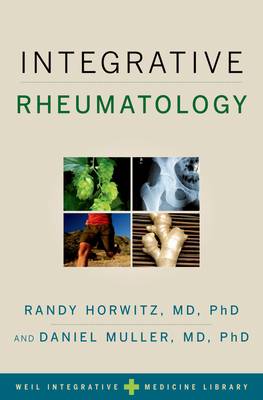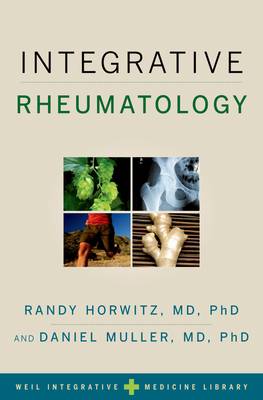
- Afhalen na 1 uur in een winkel met voorraad
- Gratis thuislevering in België vanaf € 30
- Ruim aanbod met 7 miljoen producten
- Afhalen na 1 uur in een winkel met voorraad
- Gratis thuislevering in België vanaf € 30
- Ruim aanbod met 7 miljoen producten
Omschrijving
Rheumatology, Allergy, and Immunology are strong areas for integrative therapy because 1) these diseases and teh pain accompanying them are uniquely responsive to integrative treatment; 2) conventional treatments are often toxic and suppressive rather than curative; 3) mind/body interactions, including the effects of stress and anxiety, are clearly relevant in these conditions; and 4) patient demand is strong. In this volume in the series, the authors describe a rational and evidence-based approach to the integrative therapy of rheumatologic, allergic, and autoimmune disorders, integrating the principles of alternative and complementary therapies into the principles and practice of conventional medical therapy. The authors will examine what works and what doesn't and offer practical guidelines for physicians for incorporating integrative medicine into their practice and advising patients on reasonable and effective therapies. The text will discuss areas of controversy and identify areas of uncertainty where future research is needed. Chapters will cite the best available evidence for both safety and efficacy of all therapies discussed. Information will be presented in accessible and easy-to-read formats, including clinical pearls, case histories, and key points, with a second text color for highlighting key information.
Specificaties
Betrokkenen
- Auteur(s):
- Uitgeverij:
Inhoud
- Aantal bladzijden:
- 376
- Taal:
- Engels
- Reeks:
Eigenschappen
- Productcode (EAN):
- 9780195311211
- Verschijningsdatum:
- 12/10/2010
- Uitvoering:
- Hardcover
- Formaat:
- Ongenaaid / garenloos gebonden
- Afmetingen:
- 157 mm x 236 mm
- Gewicht:
- 576 g

Alleen bij Standaard Boekhandel
Beoordelingen
We publiceren alleen reviews die voldoen aan de voorwaarden voor reviews. Bekijk onze voorwaarden voor reviews.








